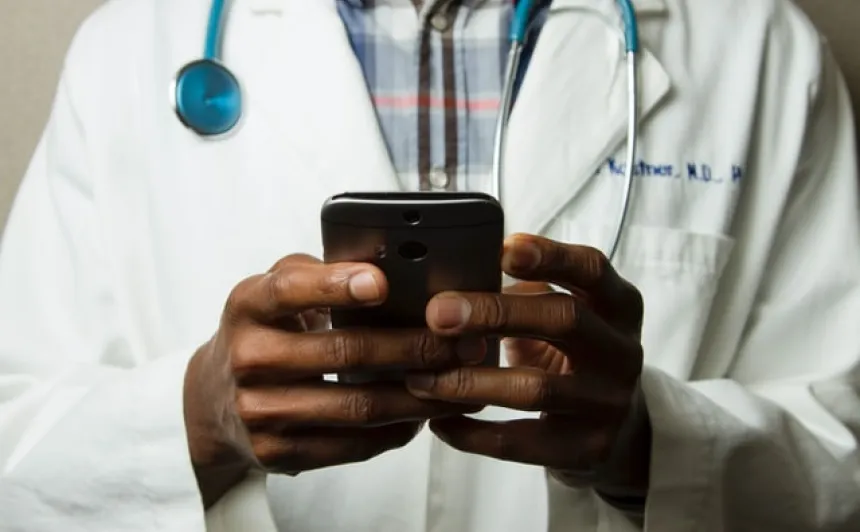How automation is boosting healthcare and improving patient outcomes


The healthcare industry is experiencing technological advances which provide improved patient care and outcome. Automation technologies are among those that are helping this industry to manage tasks, save time, and to boost patient satisfaction. These technologies include digital process automation, chatbots, machine learning, AI, and more.
With the growing problem of a shortage of doctors between 54,100 to 139,000 by 2033 - and to handle pandemic situations such as Covid-19 - automation is the key to manage the healthcare system smoothly.
Read on to know some of the ways in which automation helps to boost healthcare and to improve patient outcomes.
1. Boosting Patient Experience and Engagement
Patient satisfaction is a vital aspect for healthcare facilities as this assures that patients will come back and bring in new ones as well.
Automated healthcare processes (using digital process automation, or DPA) are boosting patient engagement and experience, offering a hassle-free admission, check-ups, and follow-ups - always preferable as compared to manual paperwork.
For example, a telemedicine application that schedules appointments and gives an option to reschedule is better than waiting in a queue. Further, appointment or medication reminder features in healthcare applications enhance patient experience because patients often forget about health due to busy lives.
Automated reminders help doctors to free-up staff as per schedule and ensure reduction in no-show appointments too. Chatbots are another kind of automation that improve patient experience by answering patients’ questions, providing them with additional information, and booking appointments. Medical staff use chatbots - which can be integrated with digital processes - to prioritize patient care and to collect post-care data from patients.
For example, Grace - a chatbot by Providence St Joseph - was launched in Washington State - to ask about symptoms before deciding on an action.
2. Better Patient Care
Patient outcome goes hand-in-hand with the degree of care provided to them. Along with care, other factors such as building patient communication and improving operational efficiency is essential as well. All of these aspects together ameliorate patient care.
Automated processes boost patient care by alerting physicians and nurses when patients miss steps or deviate from their treatment plans. Further, medical data is shared with multiple physicians and nurses throughout the day, and chances of errors increases, thus hampering patient care. Digital automation of these processes using a case management approach minimizes medical errors for more effective treatment.
Machine learning (ML) and artificial intelligence (AI) technologies integrated with process-based automation platforms process data, and medical staff can use this data to predict flu seasons and prepare hospital staff to provide timely care.
By automating tedious tasks, doctors can spend more time on treatment, diagnosis, and patient communication, thus enhancing overall care.
3. Disease Detection and Diagnosis
Diagnosing a disease correctly requires years of medical experience and training. Doctors are under constant stress during diagnosis because it may be a life and death situation. Automated technologies such as machine learning and artificial intelligence algorithms have made advances in disease diagnosis and detection.
AI and ML algorithms are designed to learn specific disease patterns through various datasets and give results when a patient data is fed to it. This lessens the burden of doctors by confirming crucial diseases such as cancer, brain defects, or tumors.
Automation is helpful for chronic disease management because AI is easily integrated into automation platforms and can respond to data precisely, thus improving outcomes. AI technologies can detect medical conditions such as strokes, health diseases, or lung disorders.
For instance, Johns Hopkins University researchers explored whole-heart computational models to know more about ventricular arrhythmias, and as per researchers this can result in personalized medications.
Furthermore, automated AI systems help to detect diabetes and cancer for early prevention measures. Researchers at Tulane University in New Orleans discovered that AI can successfully diagnose and detect colorectal cancer by scrutinizing tissue scans better than pathologists can.
4. Provide Healthcare Data Insights
From patient medical records to hospital records, the healthcare sector records immense data daily. Hence, collection and organization of this data is the first step towards acquiring data insights. Healthcare data insights help to provide efficacy, value, and improved care quality to patients.
Further, data insights help to meet organizational goals and to streamline research procedures. Automated data management allows researchers to connect in real-time with teams.
In hospitals and clinics, the amount of patient data collected is overwhelming and causes delays in providing care, thus impacting outcome. Therefore, data management through automation helps to streamline clinical management. Automation platforms track and organize patient data and make it available on cloud technologies when requested.
Data insights help to take crucial decisions such as fund allocation for research or hospital departments, or to purchase new technology.
5. Improve productivity in healthcare facilities
The healthcare sector has its fair share of clerical work such as managing inventory, scheduling appointments, handling patient documents, and shift planning. Clerical work is time consuming and hampers productivity too.
Automated process applications integrated with data systems, communication systems, patient management systems, and so on cut a substantial amount of time from mundane tasks to allow individuals and teams to focus on productivity. This in turn contributes to professional satisfaction.
As per a survey by Merrit - Hawkins, 78 percent of physicians experience symptoms of professional burnout. This can negatively impact both the medical system and individual patient care as they reduce their work time or even leave their profession.
Automation in the healthcare sector helps in timely data delivery, builds precision, and helps to facilitate better communication among medical professionals and patients, reducing work pressure, stress, and burnout.
Ready to simplify your processes with Bonita?
Every business deserves a solution that accelerates its success. With Bonitasoft, simplify, automate and transform your business processes. Take the first step towards optimal performance today. Let's talk about it?







